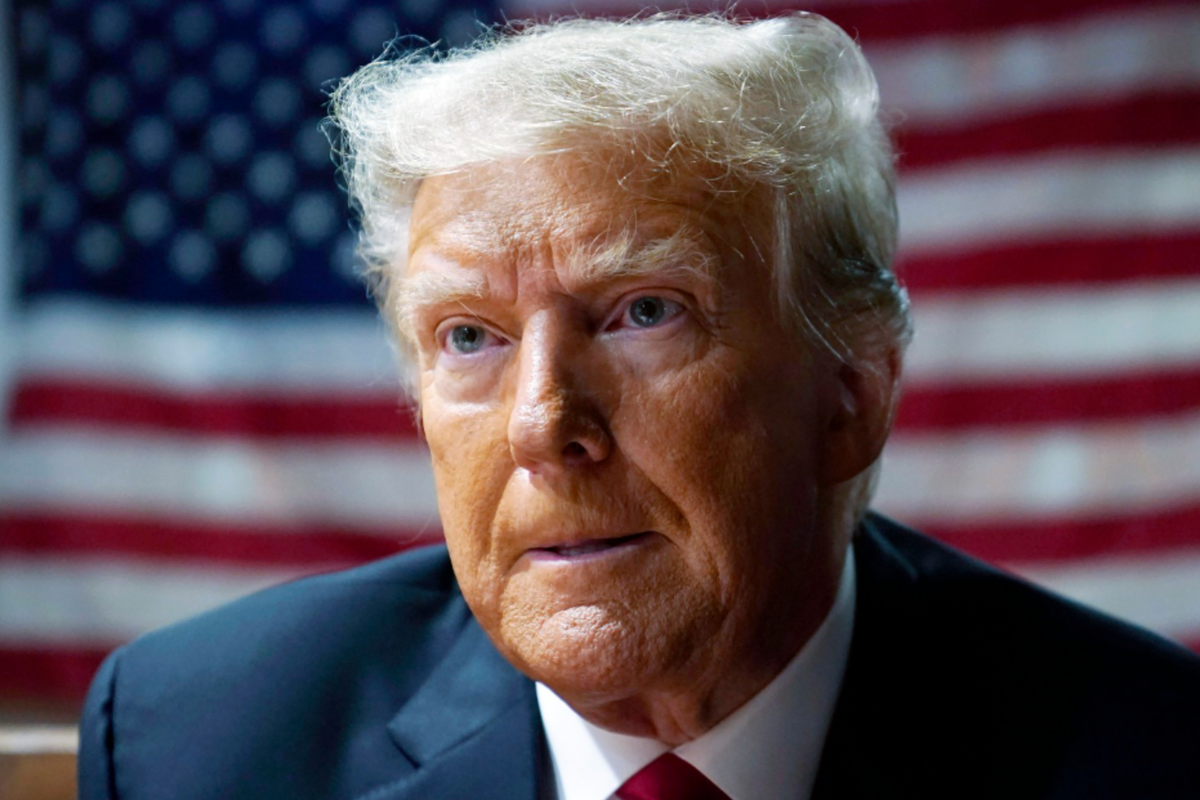Voices: Is Donald Trump a legal unicorn?

- Oops!Something went wrong.Please try again later.
As the legal troubles facing Donald Trump grow, many of us are torn by conflicting responses to the spectacle of a former president facing multiple felony criminal indictments.
Yes, we’re grateful that the most depraved, transparently autocratic president in US history is facing justice. But our satisfaction is tempered by the knowledge that, like any mob boss, Trump sees the indictments as a badge of honor, and countless MAGA die-hards see them that way, too.
One recent, seemingly small legal maneuver by Trump and his attorneys that might have gone unnoticed amid the tumult, however, is worth noting. Namely, a countersuit filed by Trump’s lawyers against the writer E Jean Carroll for defamation, after she won a $5 million civil judgment against Trump for both defamation and sexual abuse.
As background, one has to recall that after her historic civil trial against Trump, Carroll went on CNN in early May and repeated her assertion that Trump raped her in a Bergdorf-Goodman dressing room in the 1990s.
Trump’s countersuit claims that Carroll’s words caused “significant harm to [Trump’s] reputation,” and that he was deserving of compensatory and punitive damages.
In other words, Trump’s attorneys claim that Carroll defamed the former president because she said that he raped her after a jury had only – only! – found him liable for sexual abuse.
That Trump and his attorneys Alina Habba, Joe Tacopina, et al., pulled this obscene legal move is hardly surprising; he has never been known as a gracious loser.
What is notable, though, is that we might witness a court decision in the coming days or weeks citing that rarest of legal unicorns: the “libel-proof plaintiff.” The hallmark of a defamation claim is reputational harm. The thinking behind the “libel-proof plaintiff” doctrine is that some people have reputations so tarnished that they cannot be further injured by any statements.
A recent instance where the “libel-proof plaintiff” doctrine came into play was the May 2020 case, “Dykstra v. St Martin’s Press LLC.” The judge in that case tossed former pro ballplayer and all-around creep Lenny Dykstra’s lawsuit against his former teammate Ron Darling, who had written in his memoir that Dykstra, then with the Mets, hurled racist insults at a Red Sox pitcher during the 1986 World Series.
In his ruling, the judge wrote that Dykstra was “infamous for being, among other things, racist, misogynist, and anti-gay, as well as a sex predator, a drug-abuser, a thief, and an embezzler” – and thus, libel-proof.
Fast forward to July 2023, and Donald Trump’s lawyers filing their defamation suit against E Jean Carroll. The spark for the suit was what Carroll said on CNN when asked about the jury finding that Trump sexually abused her but did not rape her.
“In response to that specific inquiry,” Trump’s suit reads, “Counterclaim Defendant [Carroll] disregarded the jury’s finding that Counterclaimant [Trump] did not rape her, and replied: ‘Oh yes he did, oh yes he did.’”
Never mind that Judge Lewis Kaplan (no relation to Roberta Kaplan) wrote in a July 19 decision denying Trump’s request for a new civil trial that, notwithstanding the jury’s finding that Carroll “failed to prove that she was ‘raped’ within the meaning of the New York Penal Law … as the evidence at trial makes clear, the jury found that Mr. Trump in fact did exactly that.”
Which brings us back to where we started – with the whirlwind of criminal indictments and civil trials engulfing the former president. (The second E Jean Carroll defamation trial against Trump, this time asking for $10 million in damages, is scheduled to begin on January 15, 2024 – the very same day as the Iowa Republican presidential caucuses. Oh, the irony.)
Donald Trump is an adjudged sexual abuser and defamer. The number of close associates who have been found guilty of, or been charged with, serious crimes continues to grow. Trump is the loudest and most brazen proponent of the Big Lie, and the nation watched him sit quietly -- for hours -- while his cultists, driven by the Big Lie, attacked the Capitol, assaulted police officers, and threatened to violently stop the peaceful transfer of power.
Is Donald Trump innocent until proven guilty in any and all of his upcoming criminal proceedings? By all means. But as the judge in the aforementioned case said of Lenny Dykstra, his reputation was “already so tarnished that it [could not] be further injured.”
It’s a good bet that Trump, too, will be found libel-proof in his countersuit against Carroll. He is, by every measure, simply too awful to be defamed.

